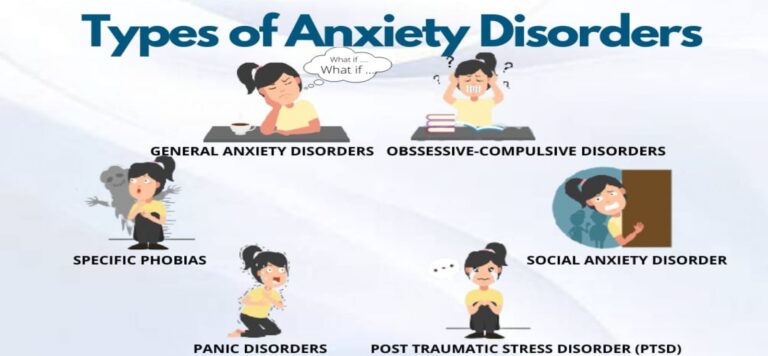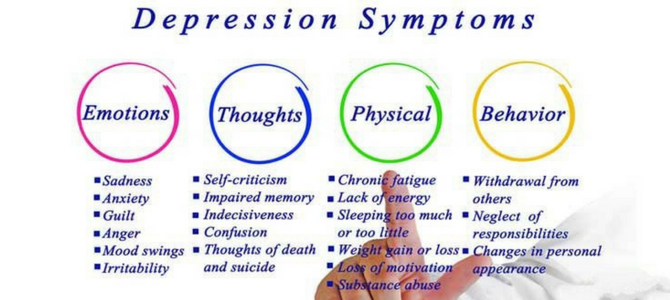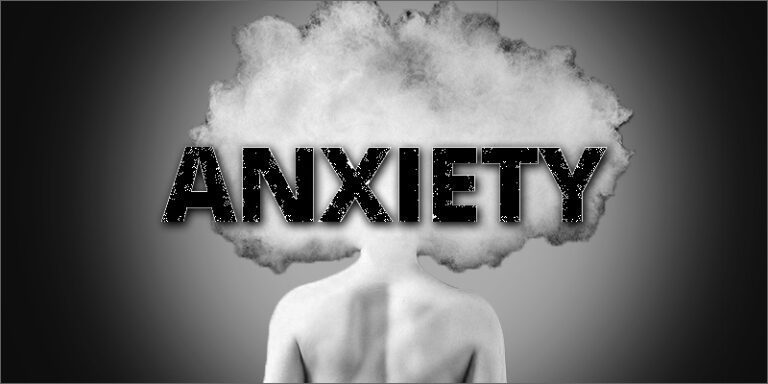Anxiety Disorder
Anxiety disorders are the most common form of emotional disorder and can affect anyone at any age. According to the American Psychiatric Association, women are more likely than men to be diagnosed with an anxiety disorder.
If you have an anxiety disorder, you may also be depressed. Some people with anxiety disorders also abuse alcohol or other drugs in an effort to feel better. This may provide temporary relief, but can ultimately make the condition worse. It may be necessary to treat an alcohol or drug problem before the anxiety can be addressed.
Cause:
- Stress from school or work
- Financial problem
- Divorce or termination of closer relationship
- Death of loved one
- Traumatic experience such as sexual assault, physical abuse and being a victim of crime
- Low oxygen level in high altitude areas
There are several different anxiety-related disorders. Some symptoms overlap across many of these disorders, and others are more specific to a single disorder. In general, however, all anxiety-related disorders feature worry, nervousness, or fear that is ongoing, excessive, and has negative effects on a person’s ability to function.
Types of Anxiety Disorder
- Generalized anxiety disorder: excessive worry about anything and everything, sleep problems, tension, easily tired,restlessness
- Social anxiety disorder: anxiety in social situations, often rooted in the fear of doing something wrong and being judged by others.
- Panic disorder: repeated panic attacks and worry about future panic attacks.
- Agoraphobia: anxiety about having a panic attack in certain situations and not being able to escape or to get help.
- Specific phobias: intense fear of objects or situations (e.g. dogs).
- Obsessive-Compulsive Disorder (OCB): recurring irrational thoughts that lead you to perform specific, repeated behaviors
- Separation anxiety disorder: fear of being away from home or loved ones
- Hypochondriasis: anxiety about your health
- Post Traumatic Stress Disorder (PTSD): anxiety following a traumatic event
[/vc_column_text][vc_column_text]It is important to understand that anxiety disorder is an illness. It can be tricky to decide when anxiety is typical or linked to a disorder, which is why diagnoses should be made by licensed professionals, such as clinical psychologists or psychiatrists .Some people who have a mild anxiety disorder or a fear of something they can easily avoid, decide to live with the condition and to not seek treatment.
When to see a doctor? See your doctor if:
- You feel like you’re worrying too much and it’s interfering with your work, relationships or other parts of your life
- Your fear, worry or anxiety is upsetting to you and difficult to control
- You feel depressed, have trouble with alcohol or drug use, or have other mental health concerns along with anxiety
- You think your anxiety could be linked to a physical health problem
- You have suicidal thoughts or behaviors — if this is the case, seek emergency treatment immediately
Prevention
There’s no way to predict for certain what will cause someone to develop an anxiety disorder, but you can take steps to reduce the impact of symptoms if you’re anxious:
- Get help early.Anxiety, like many other mental health conditions, can be harder to treat if you wait.
- Stay active.Participate in activities that you enjoy and that make you feel good about yourself. Enjoy social interaction and caring relationships, which can lessen your worries.
- Avoid alcohol or drug use.Alcohol and drug use can cause or worsen anxiety. If you’re addicted to any of these substances, quitting can make you anxious. If you can’t quit on your own, see your doctor or find a support group to help you.
Know more how Yoga helps to cure Anxiety, contact MBS Holistic Clinic best Yoga Training Center in Whitefield, Bangalore.
Visit https://mbsholisticclinic.com/ or call 8884764898





